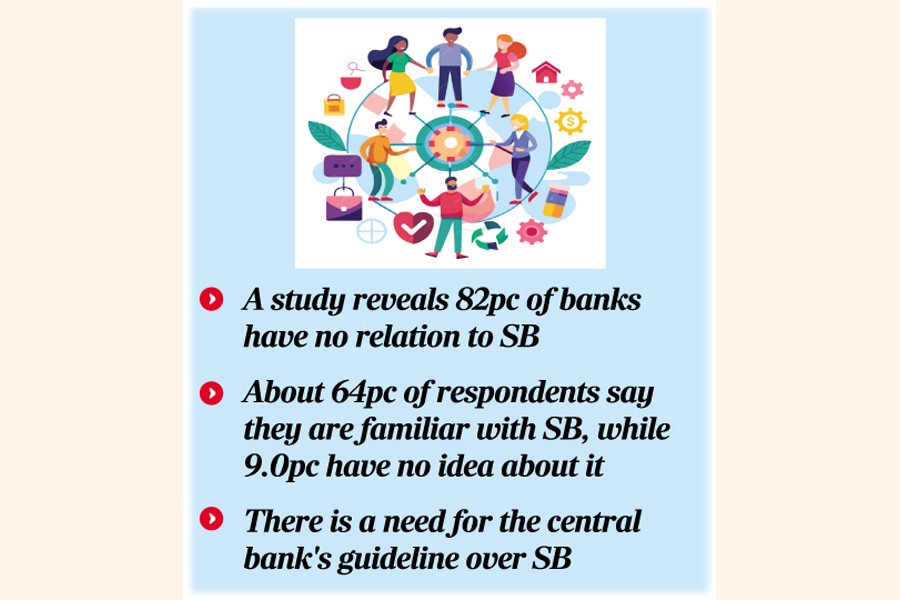
Published :
Updated :

Social business model is not suitable for commercial banking, rather it could be applicable for Corporate Social Responsibility (CSR) funds of the financial institutions.
The observation came at a roundtable discussion titled "Role of Banks in Financing Social Business (SB) in Bangladesh", organised by the Bangladesh Institute of Bank Management (BIBM) on Tuesday.
Prof Dr Prashant Banerjee of BIBM presented the recent study on the banks' finance to social business, which said 82 per cent of banks have no products dedicated to social business.
BIBM conducted the study on 34 bankers and 64 per cent of respondents said they have some idea about SB while 9.0 per cent have no idea about it.
Nearly 58 per cent of the bankers said the CSR could be used for SB rather than that of commercial banking products.
Bangladesh Bank (BB) Deputy Governor and BIBM chairman Nurun Nahar placed introductory speech while the Director of BIBM Prof Md Shihab Uddin Kahn delivered the welcome address.
Dr. Prashant Banerjee in his research paper highlighted a wide range of financing options available for social businesses, emphasising the need for structured and stage-based funding.
Dr Banerjee stressed the need for third-party auditing of CSR activities to ensure transparency and proper utilisation of corporate social responsibility funds.
Kazi Md Wahidul Islam, Managing Director of Rupali Bank PLC, described social business as a 'unique hybrid' of social welfare and commercial reinvestment.
He stressed that while banks must ensure profitability and protect depositors' interests, they can still integrate social goals into their operations.
He noted that every business has the potential to become a part of the broader social business ecosystem, especially under the vision of achieving "three zeros" - zero poverty, zero unemployment, and zero carbon emissions.
CSR is not a business in the traditional sense, rather it is a responsibility, he said,
Mosleh Uddin Ahmed, Managing Director of Shahjalal Islami Bank, raised a concern over the present profit-driven banking concept.
He argued that certainly non-profit social business models may not be viable for commercial banks unless it is aligned with sustainable financial goals.
Islami banks have substantial CSR resources, he also pointed out, and adding that managing such resources through the Shariah principles could unlock massive opportunities for development.
Faruq M Ahmed, AK Gangopadhyay Chair Professor at BIBM, observed that Shariah-based banks are often restricted from deploying their full asset portfolios due to interpretations of Islamic finance principles.
He, however, called for structural reforms, clearer policies and a formal definition of social business tailored to the banking sector.
Raising the issues of governance and instances of taking loans by bank owners from other banks, he stressed the need for bringing about reform in ownership structures and regulatory process.
An Assistant Director from a private commercial bank stated that without government-backed funds, banks cannot run social business programmes sustainably with their own capital.
Some bankers also suggested that Bangladesh Bank should set up a dedicated social business fund, offering low or even zero-interest financing.
The speakers also suggested integration of policy, finance, and institutional frameworks with the proposed BB funding.
Institutions such as BIBM could offer academic researches, technical training and capacity-building support in this regard.
tonmoy.wardad@gmail.com


 For all latest news, follow The Financial Express Google News channel.
For all latest news, follow The Financial Express Google News channel.